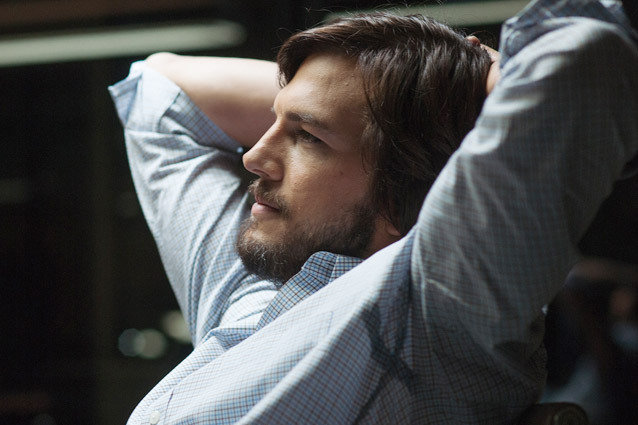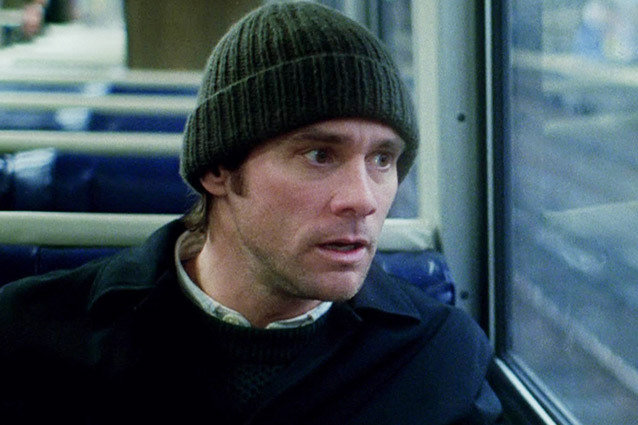
There’s an old joke from the golden age of Family Guy. A wide-eyed Peter Griffin flashed back to his theatrical viewing of the 1994 drama Philadelphia, delighting in his first sight of Tom Hanks (“the guy from Big“), as he takes the actor’s presence to indicate an endearing cinematic thrill-ride of laughter yet to come over the next two hours and change. Obviously, anyone who has seen Philadelphia knows that no such luck would befall Peter Griffin. But he couldn’t have been the only one to spot Hanks in a trailer for the Jonathan Demme movie and think, “That’s gonna be hilarious!” When comedic actors — actors with credits like Turner and Hooch and Joe Versus the Volcano to their name — take on roles as dramatic as Hanks’ in Philadelphia, it takes some adjusting to the idea that they can really pull it off. Obviously, the Oscar-winning performer did so, and then some, as the AIDS-stricken attorney Andrew Beckett, and has held esteem as one of Hollywood’s most formidable players ever since. But the transition isn’t always so seamless.
Ashton Kutcher makes a go of it this weekend with Jobs, a biographical account of the life and work of Apple founder Steve Jobs, who died of cancer in 2011. Spending a good deal of the film yelling at employees, neglecting his family, and struggling with his own narcissistic rage, Kutcher is dry and humorless, hardly cracking a smile and never attempting a joke. Nothing in the territory of Michael Kelso, the dim-witted That ’70s Show character that made the actor famous.
But it isn’t just Kutcher’s on-camera persona that’s been built on the essence of comedy. As the “brains” behind Punk’d and a proverbial goofball, Kutcher has emanated a boyish charm that contributes wholeheartedly to a comic identity. Even with the dark and somber The Butterfly Effect as one of his most talked about features, Kutcher has stood, up until now, as a funnyman first. But just as Philadelphia did for Hanks, perhaps Jobs will change this for the still-developing Kutcher.

The transition has been made before with riveting success. Some former comics won audiences over with dramatic turns and held fast to the new identity, for instance Hanks (whose comedies these days are few and far between). But more often than not, a comedic actor will pad the blow of his or her new veneer with some of the old magic thereafter. Think about Jim Carrey’s great turn in Eternal Sunshine of the Spotless Mind: we loved it. We ate it up. It’s in the Top 10 list of every marginally sensitive American under the age of 35. But we’re still getting films like Burt Wonderstone and this week’s Kick-Ass 2. Why? Maybe for the money. Maybe for his kids. Maybe because he truly loves the craft. But whatever the reason, a chunk of it has to do with the fact that jumping around like a maniac is part of who Jim Carrey, the performer and the man, is. It’s how he got his start, and it’ll probably be a present element of his work until his days in showbiz are over.
Look at Adam Sandler, who killed it, quite impressively, in Paul Thomas Anderson’s Punch-Drunk Love. Since then, we’ve seen others of the sort: Reign Over Me, Spanglish, Funny People all follow suit. But for every Punch-Drunk Love, we have about three Jack and Jills. Sandler’s Billy Madison motif deliberately overshadows his softer, gentler, and objectively better movies. Why? Is it because there are so many more of those? Because they make so much more money than the others? Maybe it’s simply because it’s hard to insititute a permanent air of sophistication in regards to a guy who got famous saying things like “abby-shabba-doobie.”
Clearly, success rates in the practice vary quite a bit. Although Robin Williams padded the ’90s with a handful of well-done dramas, he’ll still always be the maniacal rambler who aced it in Mrs. Doubtfire but has since worn out his theatrical welcome. Bill Murray, on the other hand, replaced his wily smartass persona with quiet, temperate dramas nearly altogether, and we’re just as happy to admire him in this vein as we were to celebrate him in the old.
And now we have Ashton braving the quest, crossing the river from laughs to tears. What will follow his spot in Jobs? More hard-hitting character pieces? A jut into genre territory? Or maybe a return to screwball comedy? We’ll have to see if he goes Hanks, stays Sandler, or pulls the rarest feat of them all: the Asner. Picture it — Michael Kelso in his own grimacing crime drama series. You’d watch. We’d all watch.
Follow Michael Arbeiter on Twitter @MichaelArbeiter | Follow hollywood.com on Twitter @hollywood_com
More:
‘Jobs’ Review
Ashton Kutcher in ‘JOBS’ and Other Crazy Movie Diets
First Instagram Trailer for ‘Jobs’
From Our Partners Battle of the Bikini Bodies (Celebuzz)
Battle of the Bikini Bodies (Celebuzz) Complete Guide to Strippers in Movies and TV (Vh1)
Complete Guide to Strippers in Movies and TV (Vh1)


